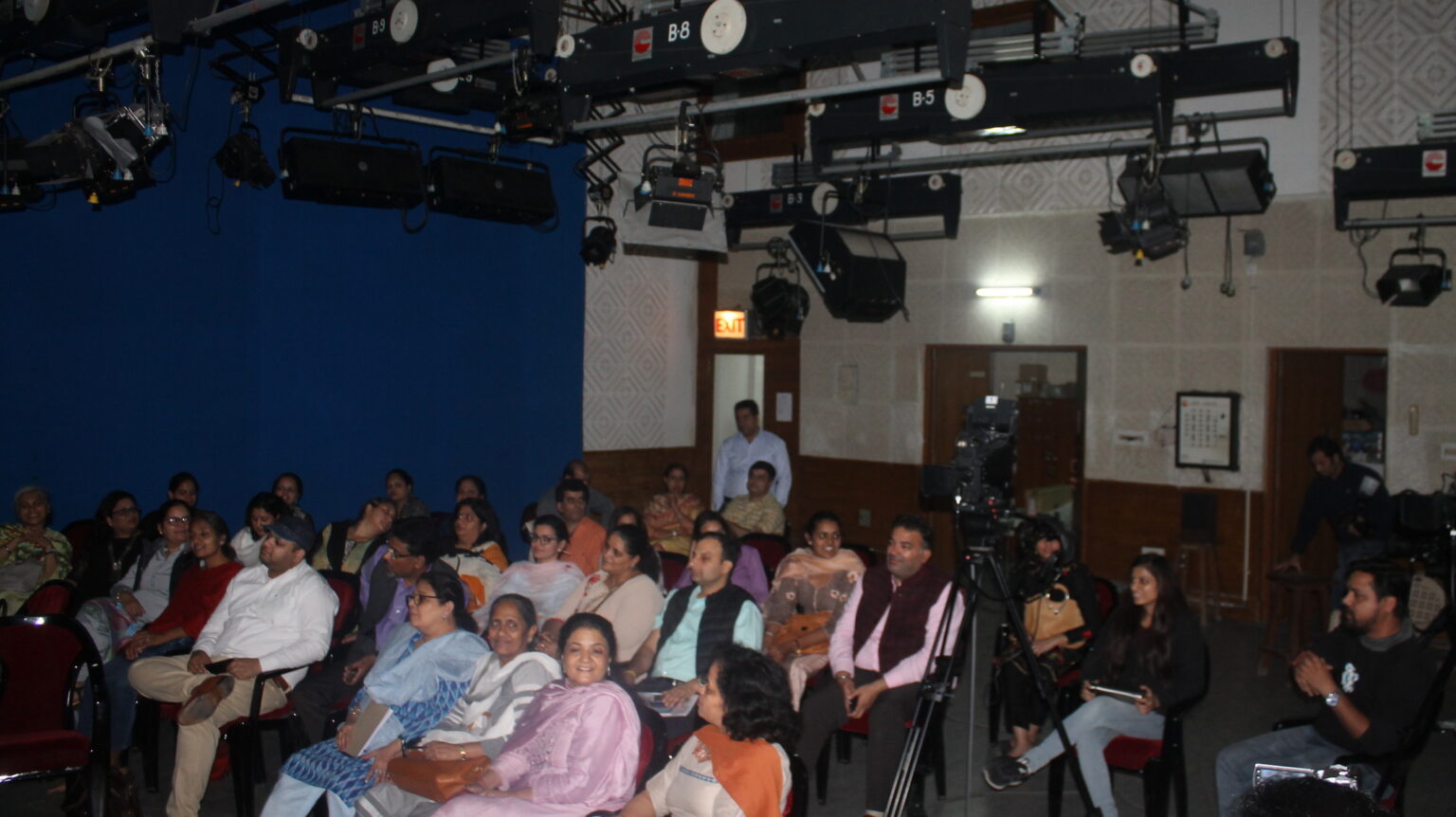Chandigarh November 8, 2019
Prof. Jatinder Grover, CALEM Coordinator, Panjab University, and Dr. Vishal Sharma, SWAYAM Coordinator PU, introduced the theme and topics to the participants attending seven days workshop on designing and development of the Massive Open Online Courses (MOOCs). The workshop is being organised by the Centre of Academic Leadership and Education Management (CALEM) and Swayam Cell, Panjab University, Chandigarh.
The day four of workshop was devoted to the e-content development at ETV Studio at NITTTR, Chandigarh. The Instructional design and creating effective learning experiences by Mr. Girish Gurjar from IIM, Banglore were discussed. The rest of the sessions were dedicated to the practical aspects of video production and editing of the e-content in the ETV studio. Prof. Maitreyee Dutta coordinated the practical sessions. The technical team consisting of Savita Bhanot (STA, ETV), Anurag Soni (Cameraman), Jagir Singh, Baljeet, Monika Arora, Harjot Pal Singh, G.B. Pandey handled the studio production and post production sessions. The participants were shown the e-content developed in the studio after post production or final editing was done. The discussion and feedback session between the participants and the technical team culminated in the practical session at NITTTR, Chandigarh.
The day five was devoted to the understanding of learner-centric MOOC model by Dr. Vineeta Shah from IIT, Mumbai. She explained in detail the concept and intricacies of Learning by doing (LeD) and Learning Extension Trajectories (LxT) with the help of group activities and multimedia presentations. LxT enables the learner to increase the depth of their knowledge which usually supported by the assimilation quiz. The Learning Experience Interactions (LxI) in which learners interact via discussion forums were also discussed in detail.
Prof. Rajat Sandhir discussed the issues of Plagiarism in the MOOCs in the last academic session. He emphasized that the proper referencing and citation of the original sources from where the educational content was shared or used for developing the MOOCs is imperative.




